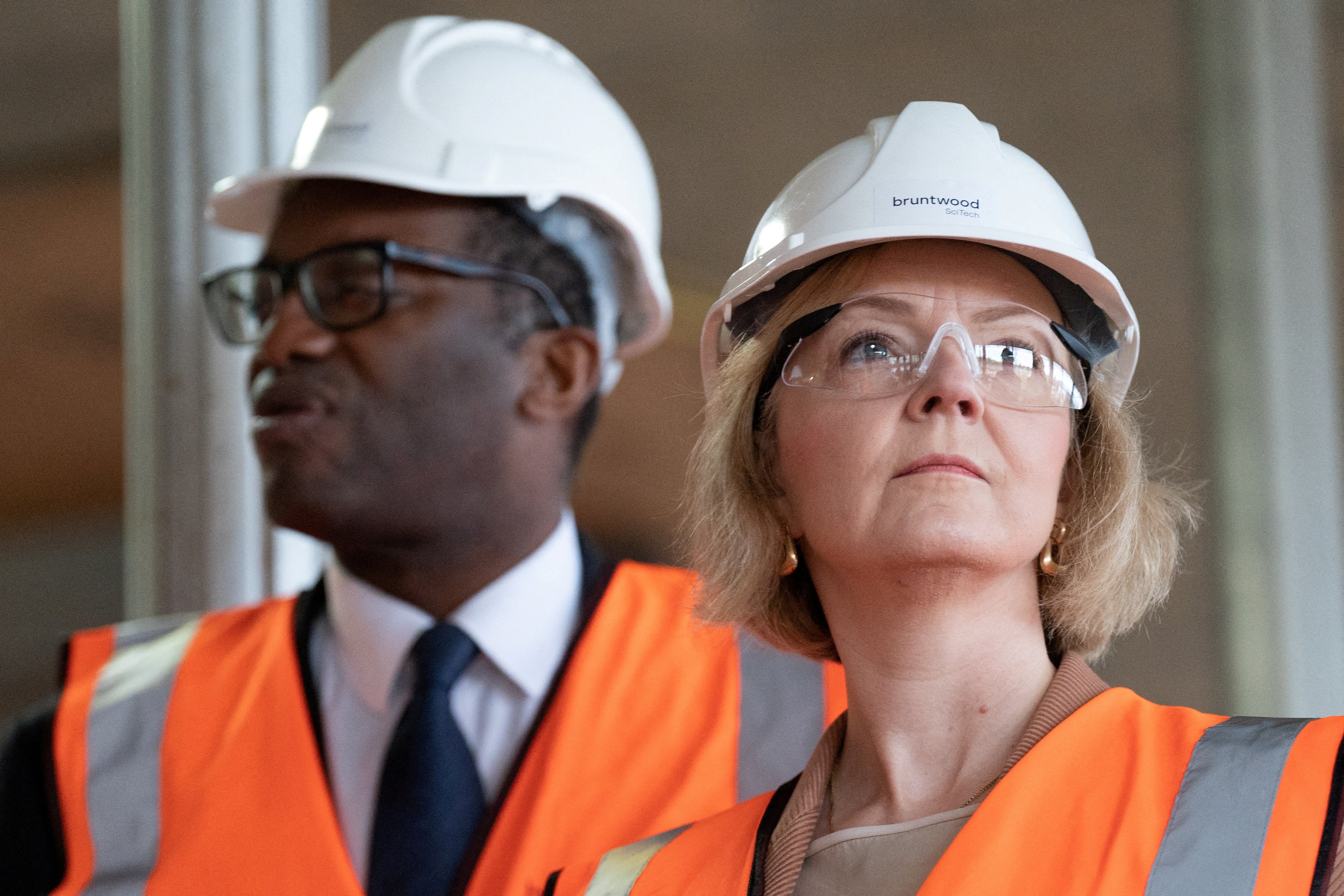Liz Truss mini-Budget ‘left homeowners £300bn worse off’
Sunak has failed to turn around damage done by predecessor’s ‘casino economics’, says Labour
Your support helps us to tell the story
From reproductive rights to climate change to Big Tech, The Independent is on the ground when the story is developing. Whether it's investigating the financials of Elon Musk's pro-Trump PAC or producing our latest documentary, 'The A Word', which shines a light on the American women fighting for reproductive rights, we know how important it is to parse out the facts from the messaging.
At such a critical moment in US history, we need reporters on the ground. Your donation allows us to keep sending journalists to speak to both sides of the story.
The Independent is trusted by Americans across the entire political spectrum. And unlike many other quality news outlets, we choose not to lock Americans out of our reporting and analysis with paywalls. We believe quality journalism should be available to everyone, paid for by those who can afford it.
Your support makes all the difference.Britain’s homeowners have taken a hit of more than £300bn in the year since Liz Truss’s disastrous mini-Budget, according to new analysis.
This week marks the first anniversary of the calamitous spree of unfunded tax cuts launched by the then-PM and her chancellor Kwasi Kwarteng, which sparked market turmoil.
Labour claimed that the pair’s “casino economics” had caused ongoing damage to the housing market which “inaction man” Rishi Sunak had failed to fix.
The party pointed to a fall of around 5 per cent in house prices since September 2022 – saying it meant UK households have seen £336bn wiped off the value of their property in the last year.
The average monthly mortgage payment is up by £220 since a year ago, Bank of England figures show, as hard-pressed families struggle to cope with the burden of higher interest rates during the cost of living crisis.
There has been frustration for first-time buyers and those looking to move house, with official figures showing that mortgage approvals have fallen by 40 per cent since the mini-Budget.
Halifax has said house prices have fallen by 4.6 per cent over the past year, while Nationwide puts the drop at 5.3 per cent. Experts have warned the slump could continue until 2025.
Pat McFadden, Labour’s shadow Cabinet Office minister, said families continued to suffer “thanks to Liz Truss and Kwasi Kwarteng’s disastrous casino economics”.
He added: “Rishi Sunak, the ‘inaction man’ prime minister, is no better, allowing himself to be trapped by divisions in the Tory party and failing to solve the problems facing the country.”

Ms Truss was booted out of No 10 by her own party in late October last year – only six weeks after winning the leadership contest and succeeding Boris Johnson.
Failure to balance the books at the mini-Budget led to market panic, a falling pound and rising interest rates. The Bank of England was forced into emergency action to save pension funds close to collapse.
In interviews since leaving, Ms Truss has largely blamed Whitehall officials for the economic turmoil sparked by her mini-Budget – saying no one told her about the risk to pension funds.
She expressed some remorse about trying to abolish the 45p top rate of tax for the wealthy – a move she was forced abandoned after an outcry from her own MPs – saying she may have been “trying to fatten the pig on market day”.
Labour has attacked Mr Sunak for scrapping binding housebuilding targets. But the Tories have accused Sir Keir of turning from a “builder to a blocker” after Labour peers defeated government plans to axe water pollution rules in a bid to boost housebuilding.
Commenting on Labour analysis, Treasury minister John Glen said Sir Keir had “no plan to tackle the big issues facing the country”.
“Sir Keir Starmer would take the easy way out with his £28bn a year borrowing spree, leading to higher inflation and higher mortgage rates,” the Tory minister added.
“Rishi Sunak and the Conservatives are focused on providing immediate relief to families and on their priorities. That is why we will halve inflation, grow the economy and reduce debt, building a stronger economy for the future.”






Join our commenting forum
Join thought-provoking conversations, follow other Independent readers and see their replies
Comments